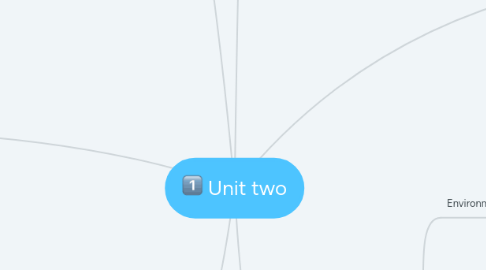
1. Physical activity
1.1. Benefits
1.1.1. The benefits of physical activity are dose-dependent, which means that the more you do, the more benefits you experience. However, the benefits are also linked to the intensity and duration of the activity, that is how hard it was and how long it lasted. When working at higher intensities, less duration is required in order to achieve the same benefits as a longer session at the lower intensities.
1.2. Mental benefits
1.2.1. There is much evidence on short-term benefits such as improved mood, ability to concentrate and ability to deal with stress
2. Gibbs reflective cycle
2.1. Step 1 - Description
2.1.1. Simply describe what happened
2.1.2. Don't draw to any conclusions
2.1.3. All you're trying to do is sent the scene and provide context
2.2. Step 2 - Feelings
2.2.1. Describe the feelings you felt
2.2.2. Don't evaluate those feelings, simply state what they were
2.3. Step 3 - Evaluation
2.3.1. Evaluate the experience
2.3.2. Determine what went well and what didn't go so well
2.4. Step 4 - Analysis
2.4.1. What do you think might have helped/hindered the situation?
2.4.2. Explore options. Including what academic models or tools might have helped you
2.5. Step 5 - Conclusion
2.5.1. Its time to some conclusions
2.5.2. What will you do differently next time?
2.6. Step 6 - Action plan
2.6.1. Create a plan based on your conclusions
2.6.2. Commit and take action on your plan
2.7. Advantages
2.7.1. Easy to understand and use
2.7.2. Allows you to learn over time
2.7.3. Over time is gives you a more balanced and accurate judgement
2.8. Disadvantages
2.8.1. Its reactive not proactive
2.8.2. It can be a superficial reflection
2.8.3. It can be difficult for people to open up and discuss their feelings
3. Locus of control
3.1. Your locus of control says a lot about how you view the world and your role determining the course of your life
3.2. Power and destiny
3.2.1. When you believe you have the power to control your own destiny and determine your own direction, you have a strong internal locus of control. In most cases, this is an important attitude to have if you want to be successful
3.3. Adapt to succeed
3.3.1. People with an internal locus of control tend to work harder and persevere longer in order to get what they want. this is not to say that having an external locus of control is always bad; there are some situations where this approach can work well. The key for your own personal development is to understanding your natural tendency and then adapting it to the situations you are face with (mind tools etc)
4. Resilience
4.1. What is resilience?
4.1.1. Personal resilience is, amongst other things, the ability to remain calm and productive during a time of uncertainty.
4.2. What does resilience help me?
4.2.1. Personal resilience is an important employability asset and can be learned and developed through awareness and positive action
4.2.2. Resilience is sometimes referred to as the ability to bounce back
4.2.3. But is more than that as it also helps us to move forward, not just return to the starting condition
4.3. 3 components of resilience
4.3.1. 1. Self-worth; Reflected in our inner dialogue and our outward confidence
4.3.2. 2. Self-control; Determines how we respond to everyday situations
4.3.3. 3. Mood; The volume of positive energy we bring to interaction, reflecting our attitudes towards the past, present and future
5. Sources of stress
5.1. Environmental
5.1.1. Noise, clutter, weather, pollution, news etc
5.1.2. Fast paced society (pressure to respond quickly, achieve, eat junk/lack of exercise)
5.1.3. Demands (school, work, family, community)
5.1.4. Situations (accidents, assignments, emergencies)
5.2. Interpersonal
5.2.1. Conflicts with parents, siblings, partners, friends, co-workers, teachers etc
5.3. Physiological
5.3.1. Lack of sleep, injury, poor nutrition, illness, pain, hormone fluctuations etc
5.4. Intrapersonal
5.4.1. The inability to say no
5.4.2. The need to be liked by everyone
5.4.3. Negative/critical self-talk
5.4.4. Extremely high expectations of ourselves
5.4.5. Personal sensitivity to criticism
6. VUCA
6.1. What is VUCA?
6.1.1. When there is volatility, uncertainty, complexity and ambiguity (VUCA), outcomes can't be foreseen and the past cannot predict the future
6.2. How do I succeed in a VUCA world?
6.2.1. Success requires the mastery of our ability to adapt and learn. In this new world, our current skill-set is of secondary importance to our ability to learn new knowledge, skills, and behaviour to respond to future challenges
6.3. How will VUCA affect me?
6.3.1. The rules of survival and success will keep on changing. There will always be younger, cheaper and hungrier people with fresher skills waiting to take our place
